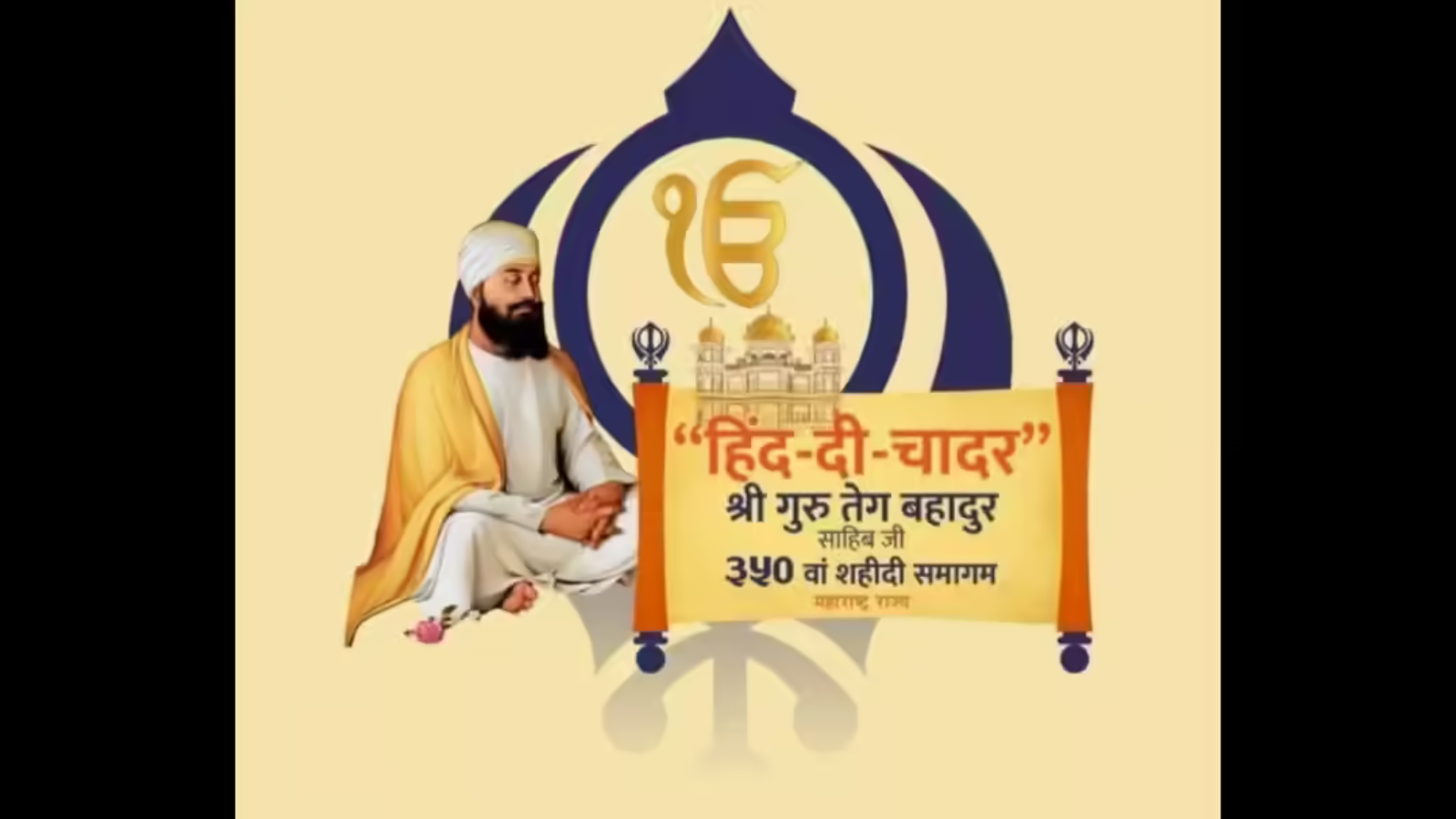Guru Tegh Bahadur 350th Shaheedi Purab: Delhi Declares Holiday To Honour 9th Sikh Guru
Guru Tegh Bahadur ji, the ninth Sikh Guru , is remembered for his supreme sacrifice and unwavering defence of religious freedom . Revered as a martyr, he courageously opposed persecution and stood firm for every individual’s right to follow their faith without fear. His life and teachings continue to inspire people across communities, reflecting values of justice, equality, and harmony.
Born on April 1, 1621, in Amritsar, Punjab, Guru Tegh Bahadur was the youngest son of Guru Hargobind and the father of the 10th Sikh Guru, Guru Gobind Singh. He became the ninth Sikh Guru in 1664, guiding the community through turbulent times marked by political instability and rising religious intolerance under the Mughal Empire.
In 1675, Guru Tegh Bahadur embraced martyrdom in Delhi, becoming the second Sikh Guru executed by the Mughal rulers. His fearless sacrifice to defend dharma, human dignity, and freedom of conscience earned him the honour of “Hind Di Chadar,” symbolising his role as the protector of religious liberty and interfaith respect.
Beyond his courage, Guru Tegh Bahadur was a profound spiritual thinker. He contributed 116 hymns to the Guru Granth Sahib (Adi Granth), focusing on humility, detachment, and inner peace. These verses continue to guide millions around the world, highlighting the spiritual depth and moral wisdom of the ninth Sikh Guru.
To mark the 350th Shaheedi Purab , the Delhi Government has declared a full public holiday on November 25. Originally designated as a restricted holiday, officials confirmed that all Delhi government offices will now observe the day as a public holiday. An official statement said the occasion allows citizens to “remember and pay heartfelt homage to Guru Tegh Bahadur’s supreme sacrifice, divine wisdom, and his unparalleled contribution to safeguarding dharam, human dignity, and freedom of conscience.”
Guru Tegh Bahadur’s martyrdom is not just an important chapter in Sikh history but also a timeless lesson in courage, compassion, and the right to practice one’s faith without fear. As India commemorates 350 years of his Shaheedi, his enduring message of equality, justice, and harmony remains as relevant today as it was centuries ago.

Born on April 1, 1621, in Amritsar, Punjab, Guru Tegh Bahadur was the youngest son of Guru Hargobind and the father of the 10th Sikh Guru, Guru Gobind Singh. He became the ninth Sikh Guru in 1664, guiding the community through turbulent times marked by political instability and rising religious intolerance under the Mughal Empire.
In 1675, Guru Tegh Bahadur embraced martyrdom in Delhi, becoming the second Sikh Guru executed by the Mughal rulers. His fearless sacrifice to defend dharma, human dignity, and freedom of conscience earned him the honour of “Hind Di Chadar,” symbolising his role as the protector of religious liberty and interfaith respect.
You may also like
- Pakistan: Residents of Karachi hold protest against water shortage
- Kuwait introduces long-term residency of up to 15 years for foreign investors
 New labour codes mark a turning point for worker welfare: Mansukh Mandaviya
New labour codes mark a turning point for worker welfare: Mansukh Mandaviya- DPA Kandla extends CSR support to Gandhidham municipal corporation
 Bollywood legend Dharmendra dies at 89
Bollywood legend Dharmendra dies at 89
Beyond his courage, Guru Tegh Bahadur was a profound spiritual thinker. He contributed 116 hymns to the Guru Granth Sahib (Adi Granth), focusing on humility, detachment, and inner peace. These verses continue to guide millions around the world, highlighting the spiritual depth and moral wisdom of the ninth Sikh Guru.
To mark the 350th Shaheedi Purab , the Delhi Government has declared a full public holiday on November 25. Originally designated as a restricted holiday, officials confirmed that all Delhi government offices will now observe the day as a public holiday. An official statement said the occasion allows citizens to “remember and pay heartfelt homage to Guru Tegh Bahadur’s supreme sacrifice, divine wisdom, and his unparalleled contribution to safeguarding dharam, human dignity, and freedom of conscience.”
Guru Tegh Bahadur’s martyrdom is not just an important chapter in Sikh history but also a timeless lesson in courage, compassion, and the right to practice one’s faith without fear. As India commemorates 350 years of his Shaheedi, his enduring message of equality, justice, and harmony remains as relevant today as it was centuries ago.









